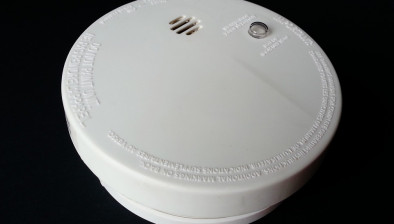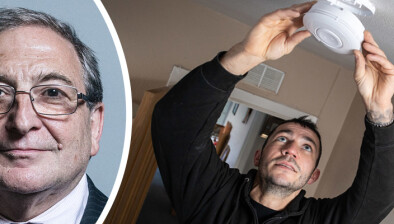Almost half of Scottish homes have no carbon monoxide alarms
 Scottish households are amongst the most likely in the UK to have carbon monoxide alarms, but nearly half are still unprotected from the silent killer, a new study has found.
Scottish households are amongst the most likely in the UK to have carbon monoxide alarms, but nearly half are still unprotected from the silent killer, a new study has found.
Research by the Carbon Monoxide Be Alarmed! campaign revealed that over 47% of people in Scotland are exposed to the dangers of carbon monoxide poisoning at home due to the lack of an alarm, a contrast to London where just a third (33%) of people have one installed.
Despite the Scottish being among the most likely to have an alarm, their awareness of the symptoms of carbon monoxide poisoning remains relatively low compared to the much of the rest of the UK. When asked what they would most likely think they were suffering from if they were experiencing headaches, nausea, dizziness and breathlessness, just 39.9% identified carbon monoxide poisoning.
This is in contrast to people living in the North West of England where over 52% would associate the symptoms with carbon monoxide poisoning.
Over 50 people die each year from carbon monoxide poisoning and another 4,000 are treated in hospital. Carbon monoxide poisoning can affect people before they are aware that there is a problem so a CO alarm can be life-saving.
Lawrence Slade, CO Be Alarmed! spokesperson, said: “As we enter one of the coldest months of the year, it is worrying to think that almost half of residents in Scotland are not protecting themselves from carbon monoxide poisoning.
“This is a silent killer - you cannot see it, taste it or smell it but it can still kill you. Protect yourself, and your family, by following the simple ABC checklist – Do you have an Alarm fitted? Have you tested it and are the Batteries working? Have you had an up to date gas Check?”
Elsewhere, research for the Carbon Monoxide Be Alarmed Campaign! shows that the knowledge that their family could be in danger (67.3%) is the biggest motivator for Scottish people to buy a carbon monoxide detector followed by knowing that their own health was in danger (49.7%).
For more information about how to stay safe, visit www.co-bealarmed.co.uk.








